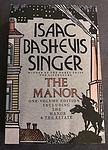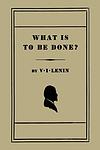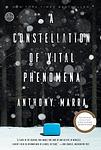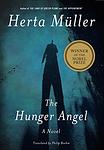The Greatest "Russia, Social & Cultural Fiction, Historical fiction" Books of All Time
Click to learn how this list is calculated.
This list represents a comprehensive and trusted collection of the greatest books. Developed through a specialized algorithm, it brings together 305 'best of' book lists to form a definitive guide to the world's most acclaimed books. For those interested in how these books are chosen, additional details can be found on the rankings page.
Genres
The category of "Russia" in books typically encompasses literature that explores the history, culture, politics, and society of Russia. This can include works of fiction, non-fiction, memoirs, and biographies that delve into the complexities of Russian life, from the tsars and the Soviet era to contemporary Russia. These books may also examine the country's relationship with other nations, its artistic and literary traditions, and its impact on global events. Overall, the category of "Russia" offers a rich and diverse range of books that provide insight into one of the world's most fascinating and complex nations.
Social & Cultural Fiction is a literary category that encompasses novels and stories that delve into the complexities of society and culture, exploring themes such as class, race, gender, and identity within specific social contexts. These narratives often provide a lens through which readers can examine the intricacies of human relationships and the impact of cultural norms and societal structures on individuals and communities. By offering a fictional yet reflective portrayal of real-world social dynamics, this genre invites readers to gain a deeper understanding of the diverse experiences that shape our world. Authors in this category frequently use their characters and settings to comment on contemporary issues, challenge prevailing ideologies, and provoke thought about the possibility of social change, making Social & Cultural Fiction a powerful tool for empathy and a mirror for the ever-evolving human condition.
Historical fiction is a genre of literature that combines fictional stories with real historical events, settings, and characters. These books often take place in a specific time period and are based on research and factual information, but also include imaginative elements to create a compelling narrative. Historical fiction allows readers to experience the past in a unique and engaging way, while also providing insight into the social, cultural, and political issues of the time.
Countries
Date Range
Reading Statistics
Click the button below to see how many of these books you've read!
Download
If you're interested in downloading this list as a CSV file for use in a spreadsheet application, you can easily do so by clicking the button below. Please note that to ensure a manageable file size and faster download, the CSV will include details for only the first 500 books.
Download-
1. War and Peace by Leo Tolstoy
Set in the backdrop of the Napoleonic era, the novel presents a panorama of Russian society and its descent into the chaos of war. It follows the interconnected lives of five aristocratic families, their struggles, romances, and personal journeys through the tumultuous period of history. The narrative explores themes of love, war, and the meaning of life, as it weaves together historical events with the personal stories of its characters.
The 16th Greatest Book of All Time -
2. Doctor Zhivago by Boris Pasternak
Set against the tumultuous backdrop of the Russian Revolution, the book follows the life of a physician and poet, Yuri Zhivago, as he navigates the political and social upheaval of the early 20th century. Torn between his love for two women, his wife Tonya and his passionate mistress Lara, Zhivago's personal struggles mirror the larger societal changes occurring around him. The novel explores themes of love, war, and the human spirit, offering a poignant and complex portrait of life during a time of revolutionary change.
The 129th Greatest Book of All Time -
3. Life and Fate by Vasily Grossman
"Life and Fate" is a sweeping epic that explores the human condition during the Siege of Stalingrad in World War II. The novel delves into the lives of a wide range of characters, from soldiers and scientists to children and victims of the Holocaust, providing a stark and unflinching portrayal of the horrors of war, the brutality of totalitarianism, and the resilience of the human spirit. At the same time, it also examines themes of love, loss, and the struggle for freedom and dignity in the face of overwhelming adversity.
The 439th Greatest Book of All Time -
4. And Quiet Flows The Don by Mikhail Sholokhov
"And Quiet Flows The Don" is a sweeping epic set in the early 20th century, following the lives of several characters in the Don River region of Russia. Through the lens of the Melekhov family, the novel explores the impact of war, revolution, and societal changes on both individuals and the community as a whole. With vivid descriptions and rich character development, the book delves into themes of love, loyalty, and the struggle for survival amidst the tumultuous backdrop of historical events.
The 699th Greatest Book of All Time -
5. Cancer Ward by Aleksandr Solzhenitsyn
"Cancer Ward" is a poignant novel set in a Soviet cancer hospital in the mid-1950s. It follows the lives and struggles of patients and doctors, exploring their personal histories, relationships, and the political environment of the time. The hospital serves as a metaphor for the oppressive Soviet state, with cancer symbolizing the malignant growth of totalitarianism. The book also explores themes of mortality, the human spirit, and the will to survive.
The 1045th Greatest Book of All Time -
6. Mother by Maxim Gorky
This novel centers around a working-class Russian woman who becomes involved in revolutionary activities after witnessing the struggles and injustices faced by her son and his comrades. Despite her initial fear and hesitation, she evolves into a dedicated activist, smuggling illegal literature and participating in strikes. The narrative provides a powerful exploration of the personal and societal transformations brought about by political activism, set against the backdrop of pre-revolutionary Russia.
The 1562nd Greatest Book of All Time -
7. The Artamonov Business by Maxim Gorky
"The Artamonov Business" is a multi-generational saga that follows the rise and fall of a Russian family's business empire from the 1860s up to the Russian Revolution. The narrative explores the dynamics of the Artamonov family, their personal struggles, moral dilemmas, and the impact of their actions on those around them. The story also provides a critical examination of the socio-economic changes in Russia during this period, highlighting the transformation from a feudal society to a more capitalist one and the accompanying moral decay.
The 1616th Greatest Book of All Time -
8. The Manor by Isaac Bashevis Singer
"The Manor" depicts the complex interplay between Jews and Polish nobility in 19th century Poland. The narrative focuses on the lives of two Jewish families, the Kalinowskis and the Dembowskis, who are tied together by marriage. As they navigate the political and social changes of the time, the characters grapple with issues of faith, tradition, assimilation and the struggle for survival. The book provides a vivid portrayal of Jewish life in Poland during a period of significant change and upheaval.
The 2443rd Greatest Book of All Time -
9. Forever Flowing by Vasily Grossman
The book is a poignant exploration of life, freedom, and the human condition, set against the backdrop of the Soviet Union after World War II. It follows the story of a former Gulag inmate who, upon his release, grapples with the profound changes in society and his own personal struggles. Through his journey, the narrative delves into the nature of totalitarianism, the resilience of the human spirit, and the search for truth and redemption amidst the oppressive political landscape of the time. The protagonist's reflections and interactions with other characters offer a deep meditation on the cost of war, the meaning of liberty, and the enduring quest for justice.
The 2942nd Greatest Book of All Time -
10. Sofia Petrovna by Lydia Chukovskaya
The book is a poignant narrative set during the Stalinist purges of the 1930s in the Soviet Union. It follows the story of a loyal and hardworking widow who is confronted with the brutal reality of the regime when her beloved son is arrested on false charges. As she navigates the Kafkaesque bureaucracy to seek justice for her son, her faith in the government and its policies is shattered. The novel offers a harrowing look at the terror of the Great Purge and the impact of political oppression on the lives of ordinary citizens, as the protagonist grapples with the disintegration of her world and the moral dilemmas posed by a society steeped in fear and denunciations.
The 3462nd Greatest Book of All Time -
11. The History Of A Town by Mikhail Saltykov-Shchedrin
"The History of a Town" is a satirical novel that chronicles the absurd and often grotesque history of a fictional Russian town, serving as an allegory for the bureaucratic inefficiencies, corruption, and societal stagnation of Tsarist Russia. Through a series of vignettes and historical accounts, the narrative lampoons the town's inept leaders and the apathetic or complicit townsfolk, using dark humor and irony to critique the autocratic government and the broader socio-political climate of the time. The work is a scathing commentary on the folly of human nature and the cyclical nature of history, where progress is continually undermined by human vices and incompetence.
The 3689th Greatest Book of All Time -
12. A Nobleman's Nest by Ivan Turgenev
The novel revolves around the life of a Russian nobleman who returns to his family estate after an extended absence. He finds himself entangled in the complex web of rural society, struggling with his own existential discontent and the changing social landscape of mid-19th century Russia. As he develops a tumultuous relationship with a captivating neighbor, the protagonist is forced to confront his own ideals, desires, and the harsh realities of serfdom that surround him. The narrative delves into themes of love, class, and the search for meaning, set against the backdrop of the Russian countryside with its rich descriptions and social critique.
The 3764th Greatest Book of All Time -
13. Who Can Be Happy And Free In Russia? by Nikolay Nekrasov
The book is a narrative poem that explores the harsh realities of peasant life in 19th-century Russia. Through a journey across the Russian countryside, the protagonist, a landowner, encounters various peasants and listens to their stories, which reveal the systemic oppression, poverty, and suffering they endure under serfdom. The work is a poignant social critique, highlighting the vast disparities between the privileged classes and the serfs, and questioning the possibility of true happiness and freedom in a society riddled with injustice and exploitation. The poem's vivid imagery and emotional depth offer a powerful insight into the struggles of the Russian peasantry before the abolition of serfdom.
The 3775th Greatest Book of All Time -
14. House On The Embankment by Yuri Trifonov
The novel delves into the lives of Soviet intellectuals and bureaucrats during the Stalinist era, focusing on the residents of a prestigious Moscow apartment complex. It explores the complex interplay of personal and political loyalties, the impact of political purges on individual destinies, and the moral compromises made by those seeking to navigate the treacherous waters of Stalinist society. Through the protagonist's reflections on his own past and the fates of his neighbors, the narrative reveals the intricate web of betrayal, guilt, and memory that binds the community, offering a poignant examination of the human cost of political oppression.
The 4063rd Greatest Book of All Time -
15. Virgin Soil by Ivan Turgenev
This novel explores the life and aspirations of a young man who, inspired by the radical movements of his time, leaves his urban life to engage in the populist cause of the 1860s in Russia. Through his journey, the narrative delves into the complexities of the Russian social structure, the serfdom system, and the fervent, albeit often naive, idealism of the youth seeking to reform their society. The protagonist's encounters with peasants, intellectuals, and fellow revolutionaries, alongside his personal struggles and disillusionments, paint a vivid picture of the era's tumultuous social and political landscape, reflecting the broader ideological conflicts between the old and the emerging new Russia.
The 6745th Greatest Book of All Time -
16. Europe Central by William T. Vollmann
The novel explores the moral decisions made by individuals during the most challenging circumstances, specifically focusing on the Eastern Front during World War II. It presents a series of interconnected stories revolving around key historical figures and events, such as the siege of Leningrad, the Soviet invasion of Germany, and the lives of famous composers and artists during this period. The book delves into the complexities of love, betrayal, sacrifice, and survival in the face of totalitarian regimes and war, highlighting the individual's struggle against the overwhelming forces of history.
The 7165th Greatest Book of All Time -
17. On The Eve by Ivan Turgenev
The novel is a poignant exploration of the lives and loves of a group of young Russian intellectuals on the brink of societal change. Set in the 1850s, it centers around Elena, a passionate and idealistic young woman, and her relationships with the men who vie for her affection, including a nihilistic revolutionary and a traditional sculptor. As the characters navigate personal desires and political ideals, the story delves into themes of love, disillusionment, and the search for identity against the backdrop of a Russia teetering on the edge of modernization and reform. The narrative captures the spirit of an era filled with hope and uncertainty, reflecting the broader tensions of a country facing the dawn of a new age.
The 7168th Greatest Book of All Time -
18. What Is To Be Done? by Nikolay Chernyshevsky
The book in question is a novel that serves as a social and political commentary on the mid-19th century Russian society. It follows the lives of a group of young revolutionaries who advocate for the emancipation of serfs and the establishment of socialism through rational egoism and utilitarianism. The narrative focuses on the character development and ideological struggles of these individuals as they navigate love, marriage, and intellectual debates. The novel's didactic message promotes the idea that through education and hard work, a new social order can be achieved, one that is based on equality, reason, and the collective good. It became an influential piece of literature for Russian radicals and later, revolutionaries, inspiring political movements and change.
The 7168th Greatest Book of All Time -
19. A Constellation of Vital Phenomena: A Novel by Anthony Marra
This novel is set in war-torn Chechnya and tells the story of a young girl whose father is abducted by Russian forces. A neighbor hides the girl in a nearby hospital where a talented surgeon, who is haunted by his past, works. Over the course of five days, their lives intertwine in a beautifully woven tale of love, loss, and the desperate struggle for survival. The narrative explores themes of hope, resilience, and the profound connections that can form even amidst terrible circumstances.
The 8723rd Greatest Book of All Time -
20. The Hunger Angel by Herta Müller
"The Hunger Angel" is a poignant novel that explores the harrowing experiences of a young man deported to a Soviet labor camp after World War II. The narrative delves into the psychological and physical toll of life in the camp, where the protagonist grapples with extreme hunger, harsh conditions, and the struggle to maintain a sense of identity and humanity. Through lyrical and evocative prose, the book captures the intense emotions and survival mechanisms of those ensnared in the brutal realities of historical political oppression.
The 10431st Greatest Book of All Time
Reading Statistics
Click the button below to see how many of these books you've read!
Download
If you're interested in downloading this list as a CSV file for use in a spreadsheet application, you can easily do so by clicking the button below. Please note that to ensure a manageable file size and faster download, the CSV will include details for only the first 500 books.
Download















